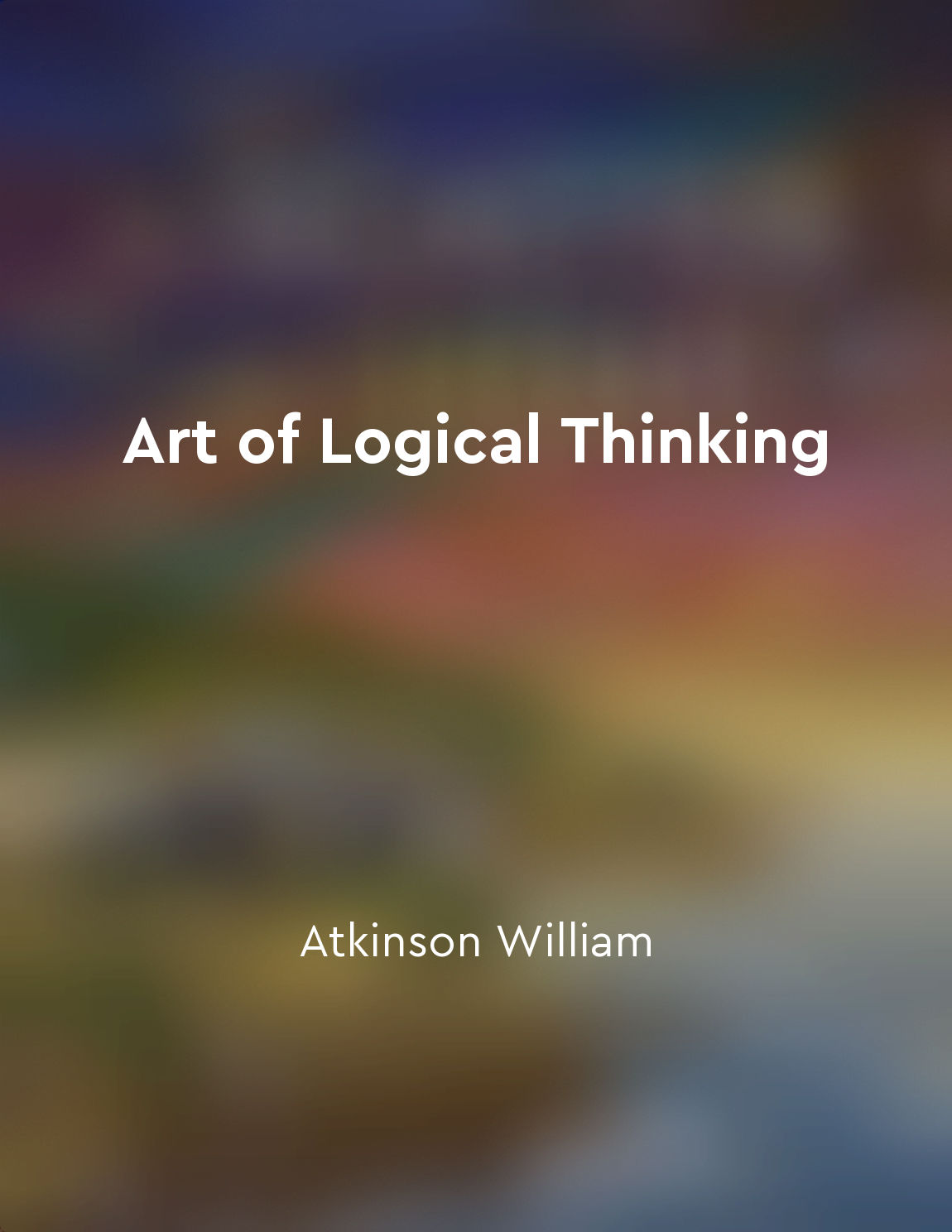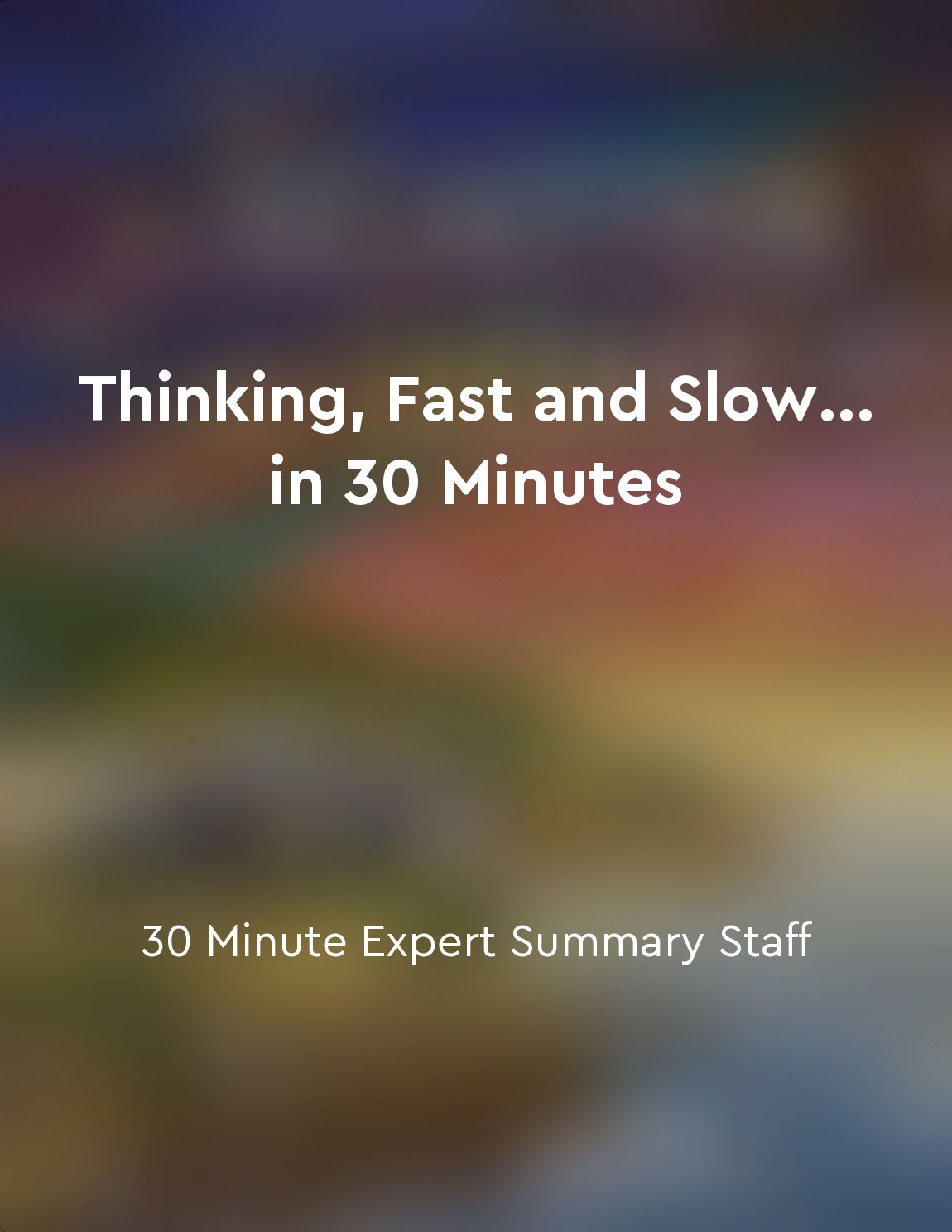Cognitive biases affect decisionmaking from "summary" of Thinking, Fast and Slow... in 30 Minutes by 30 Minute Expert Summary Staff
Cognitive biases are systematic patterns of deviation from norm or rationality in judgment. These biases often lead people to make decisions based on subjective factors rather than objective information. This can result in errors in reasoning and flawed decision-making processes. These biases are thought to be a result of the brain's attempt to simplify information processing by using mental shortcuts or heuristics. While these shortcuts can be helpful in some situations, they can also lead to errors when applied to complex decision-making tasks. One common cognitive bias is the availability heuristic, which is the tendency to judge the likelihood of an event based on how easily examples of it come to mind. This bias can lead people to overestimate the likelihood of rare events, such as plane crashes, if they are highly publicized in the media. Another common bias is the anchoring effect, which occurs when people rely too heavily on the first piece of information they receive when making decisions. This can lead to an underestimation of the true value of something if the initial anchor is set too low. Confirmation bias is another well-known cognitive bias that affects decision-making. This bias occurs when people seek out information that confirms their preexisting beliefs and discount information that contradicts them. This can lead to a skewed view of reality and prevent people from making well-informed decisions. The overconfidence bias is also prevalent in decision-making processes, where people tend to overestimate their own abilities and knowledge. This can lead to taking excessive risks or making poor choices based on false confidence.- Cognitive biases can have a significant impact on decision-making processes by leading individuals to make irrational or flawed choices. It is important for people to be aware of these biases and actively work to mitigate their effects in order to make more informed and rational decisions. By recognizing and understanding these biases, individuals can improve their decision-making processes and avoid common pitfalls that are associated with cognitive biases.
Similar Posts
Emotions play a crucial role in decisionmaking
David Brooks delves into the intricate relationship between emotions and decision-making, shedding light on how our emotional r...
Money stories shape our financial beliefs
Our financial beliefs are not formed in a vacuum. They are shaped by the stories we hear and experience about money. These stor...
Competition encourages businesses to improve products and keep prices low
Competition in the business world serves as a driving force for companies to constantly strive for improvement. When businesses...

Rational individuals should strive for consistency in their decisionmaking
Rational individuals should strive for consistency in their decision-making. This consistency involves making decisions that ar...
Cognition involves mental processes like memory and problemsolving
Cognition encompasses a wide range of mental processes that allow us to understand and interact with the world around us. One k...
Building financial resilience is essential
Financial resilience is the ability to withstand financial shocks, such as losing a job or unexpected expenses, without signifi...
Embrace uncertainty
When we encounter uncertainty, our natural reaction is often to resist it. We prefer the comfort of what is familiar and predic...

Neuroplasticity enables change
Neuroplasticity is the brain's remarkable ability to reorganize itself by forming new neural connections throughout life. This ...

Reflexivity allows for selfcorrection in reasoning
Reflexivity, in the context of logical thinking, plays a crucial role in enabling individuals to correct their own reasoning pr...
Likability plays a role in persuasion
When it comes to influencing others, likability holds a significant place in the realm of persuasion. People are more likely to...


